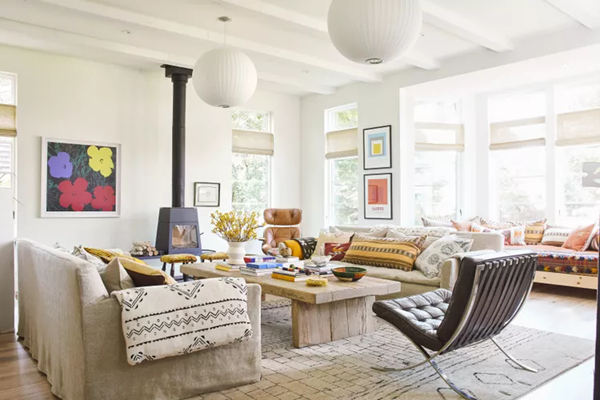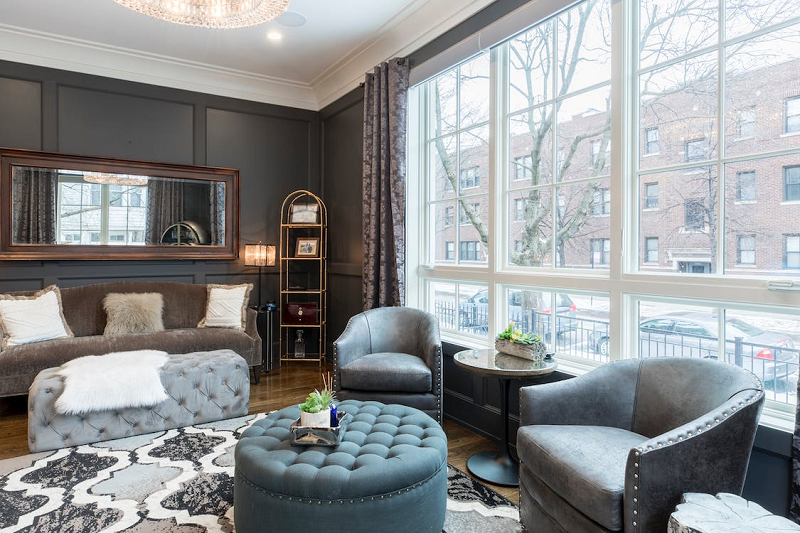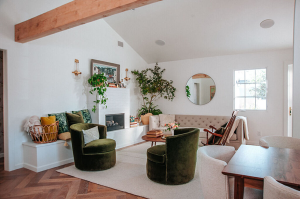If you are in the process of remodeling your home or putting your home on the market, here are 7 things real estate agents hate spending money on. Before you unleash the renovation hammer, take a moment to ponder this: some well-intentioned improvements might not resonate with potential buyers, potentially hindering your dream of a speedy and profitable sale.
This is where the concept of “smart selling” comes into play. It’s not just about slapping on a fresh coat of paint and staging some furniture. It’s about making strategic choices that cater to the preferences of the current market and maximize your return on investment.

Today, you’ll discover the top things real estate agents hate spending money on and often advise against. These seemingly harmless choices can unknowingly deter buyers and impact your bottom line. By understanding these pitfalls and opting for more buyer-friendly alternatives, you can transform your home into a market magnet, attracting qualified offers and securing the best possible price.
So, put your renovation plans on hold for a moment, grab a cup of coffee, and join me as we navigate the thrilling world of selling savvy. Remember, knowledge is power, and by avoiding these common remodeling missteps, you’ll be well on your way to a successful and stress-free selling experience.
Carpeting

The first things real estate agents hate spending money on is carpeting. While cozy carpeting might hold a special place in your heart, hardwood floors currently reign supreme in the real estate game. Their sleek lines, timeless elegance, and effortless maintenance resonate with buyers seeking a modern aesthetic that seamlessly blends with various design styles. Additionally, hardwood floors boast superior durability and longevity, factors that appeal to budget-conscious buyers and busy families.
“While carpeting is often seen as a comfortable and affordable flooring option, it tends to be less popular with today’s buyers. Carpeting can trap allergens, harbor dust mites, and show wear and tear more easily than hardwood floors. In a recent survey by the National Association of Realtors, 85% of buyers preferred homes with hardwood floors over carpeting, highlighting the shift towards modern, low-maintenance surfaces.”
National Association of Realtors (NAR)
Consider replacing worn-out carpeting with high-quality hardwood, especially in high-traffic areas like living rooms and hallways. Area rugs offer the perfect way to add a touch of personality and warmth without permanently altering the clean lines of hardwood. Remember, versatility is key when catering to a broad range of buyer preferences.
Also: How To Decorate a Desk at Home
Colorful Cabinetry

Ditch the vibrant cabinet dreams! While bold color choices can showcase your personality, they might not resonate with most buyers. In today’s real estate market, neutrality reigns supreme. Neutral-toned cabinets offer a clean canvas for potential buyers to envision their own design preferences. They seamlessly blend with various flooring and fixture styles, creating a calming and spacious atmosphere that feels welcoming to everyone.
Instead of bold cabinets, consider these alternatives:
- Classic white: A timeless choice that reflects light and creates an airy feel.
- Warm grays: Offer a touch of sophistication while remaining versatile.
- Soft beiges: Create a cozy and inviting ambiance.
Remember, you can still add pops of color through:
- Eye-catching hardware: Unique knobs and pulls can add personality without overwhelming the space.
- Bold backsplash: A statement backsplash can add visual interest without dominating the cabinetry.
- Vibrant accessories: Carefully chosen colorful accents like artwork, rugs, or plants can personalize the space without clashing with the neutral palette.
By opting for neutral cabinets and strategically incorporating color accents, you can create a space that appeals to a wider range of buyers while still reflecting your unique style.
If you are looking for a way to make any room in your home look more expensive without breaking your piggy bank then, I recommend reading “Make Your Room Look More Expensive” Here you’ll learn basic tips you can use to accomplish this.
Built-In Shelving

While built-in shelving might seem like a space-saving solution, real estate agents often view them as restrictive and inflexible. They can limit future layout possibilities, especially for buyers with different space needs or design preferences. Additionally, built-in shelves can quickly become outdated, leading to costly replacements down the line.
Consider opting for flexible furniture options that cater to changing needs and diverse tastes. Modular shelving units, stylish bookcases, and even repurposed furniture like vintage ladders can offer ample storage while maintaining a sense of adaptability. Remember, versatility is key when attracting a wider pool of potential buyers.
Also: Studio Apartment Ideas Layout That Wow: Maximize Your Space
Wallpaper

One of the 7 things real estate agents hate spending money on is wallpaper. Sure, statement wallpaper can be a showstopper, but its appeal is subjective and expensive to undo. Busy patterns and bold colors can overwhelm the senses and clash with existing flooring and fixtures, creating an off-putting experience for potential buyers. Additionally, removing wallpaper can be a time-consuming and messy process, further deterring some buyers.
“Wallpaper can be a bold and beautiful design choice, but it’s important to consider its potential drawbacks before diving in. Unlike paint, wallpaper is much more difficult and expensive to remove, which can be a turnoff for many buyers who prefer the flexibility of customizing their own space. Additionally, certain patterns and colors can quickly become outdated, potentially impacting the resale value of your home.”
Tracy Rizzo, interior designer
Instead, stick to neutral paint colors that create a clean canvas and allow buyers to envision their own decorative touches. Consider adding subtle visual interest with textured paint techniques or wainscoting for a touch of dimension without overwhelming the space. Remember, creating a neutral backdrop allows buyers to connect with the home’s potential and imagine their own design dreams taking shape.
If you are looking for a way to style your space with wall art without breaking your piggy bank, then I recommend reading “10 Surprising Benefits of Printable Wall Art”
Custom Window Treatments

Lavish custom window treatments might be a luxurious indulgence, but remember, they’re specific to your current home and might not translate well to a new space. Opting for versatile, ready-made options that complement your décor but can easily adapt to a new environment is a wise investment.
Look for classic styles in neutral colors and fabrics that are easy to clean and maintain. This saves money and ensures you can reuse them later, even if you move to a different house. Remember, versatility is key when making design choices that appeal to a broader range of buyers.
Also: 10 Best Couch Colors That Make a Room Look Bigger
Converting a Bedroom

Don’t fall for the allure of the walk-in closet illusion! In today’s market, most buyers prioritize bedrooms over luxurious extras. Converting a bedroom, even into a seemingly desirable walk-in closet, can significantly limit your buyer pool, especially for families seeking dedicated sleeping spaces.
Maximize your square footage by showcasing all functional rooms, including bedrooms, in their intended purpose. Highlight the versatility of each space, emphasizing potential uses like a home office, guest room, or even a playroom for growing families. Remember, catering to the needs of the majority often leads to a more successful sale.
Pool

Another one of the 7 things real state gents hate spending money on is investing money in pools. While a shimmering pool might be your personal oasis, it can be a significant turn-off for many buyers. Concerns about safety, especially for families with young children, are a major deterrent.
The ongoing maintenance and associated costs can also be dealbreakers for potential buyers who prioritize low-maintenance lifestyles. Additionally, pool usage often skews seasonal, limiting its appeal in colder climates.
Before diving into a pool installation, carefully consider the following:
- Target market: Analyze your local market and understand the demographics of potential buyers. Are families with young children common? Do buyers prioritize low-maintenance properties?
- Safety considerations: Ensure the pool complies with all safety regulations and consider installing fencing and alarms to address potential concerns.
- Maintenance costs: Factor in ongoing expenses like pool chemicals, cleaning services, and potential repairs. Be transparent about these costs to potential buyers.
- Seasonal usage: If you live in a climate with limited pool season, consider the impact on the overall value proposition.
- Alternatives: Explore alternatives like above-ground pools or hot tubs that offer a similar experience with potentially lower costs and maintenance requirements.
Remember, a pool might be your dream amenity, but it’s crucial to weigh the potential drawbacks and understand its impact on your target buyer demographic.
Also: How To Find Your Interior Design Style: A Step By Step Guide
5 Thing Real State Agents Do Approve
While we’ve covered the top 7 things real estate agents hate spending money on, your journey to “selling savvy” doesn’t end there. For those seeking an extra edge, we’ve compiled a treasure trove of bonus tips and tricks. Look deeper into the power of staging, discover how local expertise can unlock your home’s true potential, and explore how embracing functionality and leveraging technology can set you apart from the competition. Additionally, we’ll equip you with valuable negotiation strategies to ensure you secure the best possible outcome.
Consider this bonus section your secret weapon, packed with actionable insights to transform your home into an irresistible haven for potential buyers and ultimately, land you the sale you deserve. So, buckle up, savvy sellers, and prepare to unlock the full potential of your property with these additional game-changing strategies!
Do Spend Money On Staging:
First impressions matter immensely in the real estate world. Consider investing in professional staging to showcase your home’s potential and appeal to a broader audience. Professional stagers know how to highlight the best features of your space, declutter effectively, and create an inviting atmosphere that resonates with potential buyers. While staging might seem like an additional expense, it can significantly increase your chances of attracting qualified offers and potentially even fetching a higher selling price.
“Staging is not decorating; it’s about marketing.”
Barb Schwarz, International Staging Diva
Embrace Local Expertise:
Leveraging the expertise of a local real estate agent is invaluable when navigating the selling process. They possess in-depth knowledge of your local market, current trends, and buyer preferences. They can guide you through strategic pricing decisions, recommend necessary updates, and connect you with the right professionals like stagers or inspectors. Partnering with a knowledgeable agent can streamline the selling process, ensure you get the best possible outcome, and alleviate much of the stress associated with selling your home.
Beyond Aesthetics: Functionality Matters:
While curb appeal and beautiful finishes are important, don’t underestimate the significance of functionality. Ensure your home offers ample storage solutions, efficient layouts, and well-maintained systems like plumbing and electrical. Addressing any functional issues upfront can prevent potential dealbreakers and demonstrate to buyers that your home is move-in ready and well-maintained.
Also: Best Seasonal Fall Decor Ideas For a Warm and Inviting Home
Leverage Technology:
In today’s digital age, technology plays a crucial role in attracting buyers. Utilize high-quality photos and virtual tours to showcase your home’s best features and offer potential buyers a convenient way to explore the property remotely. Consider 3D tours, floor plan visualizations, and interactive features to enhance the online experience and stand out from the competition.
Be Prepared for Negotiations:
Selling your home involves negotiation. It’s crucial to be prepared and have realistic expectations. Consult with your real estate agent to determine a fair asking price and establish your negotiation boundaries. Remember, flexibility and clear communication are key to reaching a mutually beneficial agreement with the right buyer.
Remember to tailor these suggestions to your specific target audience and the unique features of your property for maximum impact. I hope this helps you create an informative and valuable blog post for your readers!
Conclusion: Selling Smart, Not Just Selling Fast
Selling your home is a significant journey, and every decision you make plays a role in its success. Remember, you’re not just selling bricks and mortar; you’re showcasing a lifestyle, a space filled with potential for new beginnings. By avoiding these 7 things real estate agents hate spending money on and embracing the bonus tips provided, you can transform your home into a haven for the perfect buyer.
Investing in strategic updates, partnering with local experts, and prioritizing buyer preferences are not just expenses; they’re investments in securing a smooth, profitable sale. Remember, the first impression matters, and by presenting your home as a move-in ready, functional, and well-maintained haven, you’ll leave a lasting impact on potential buyers, ultimately attracting the right offer and achieving your selling goals.
So, go forth, armed with your newfound knowledge and “selling savvy,” and may your home-selling journey be filled with exciting possibilities and a rewarding outcome!
Things Real Estate Agents Hate Spending Money On-(FAQs)
Q: I love my bold, colorful cabinets! Should I repaint them before selling?
A: While you might adore your vibrant cabinets, neutral tones are generally preferred by buyers as they offer a clean canvas for their own design tastes. Consider repainting with a neutral color or opting for removable contact paper if you’re attached to your current color scheme.
Q: But my pool is amazing! Won’t it add value to my home?
A: Not always. Pools can be a turn-off for some buyers due to safety concerns, maintenance costs, and limited seasonal use. Carefully consider your target market and weigh the potential drawbacks before keeping or installing a pool.
Q: Staging sounds expensive. Is it really worth it?
A: Professional staging can significantly improve your chances of attracting qualified buyers and potentially fetching a higher selling price. It showcases your home’s potential and creates an inviting atmosphere, justifying the investment in many cases.
Q: What if I have limited funds for renovations? What should I prioritize?
A: Focus on addressing any functional issues like plumbing leaks or outdated electrical systems. Enhancing curb appeal with landscaping and a fresh coat of paint can also yield significant returns. Remember, small, strategic updates can go a long way.
Q: I’m not tech-savvy. How can I leverage technology to sell my home?
A: Work with your real estate agent to utilize high-quality photos, virtual tours, and online marketing tools. Consider 3D tours or interactive features to stand out from competitors and offer potential buyers a convenient way to explore your property remotely.
Q: Negotiation stresses me out! Any tips?
A: Consult with your real estate agent to establish a fair asking price and negotiation boundaries. Be prepared, flexible, and communicate clearly to reach a mutually beneficial agreement with the right buyer.
IN CASE YOU MISSED IT:

Complete Guide To a Perfect Bachelor Pad

4 Rectangle Living Room Layout Ideas

Best Home Decor Ideas On a Budget
CATCH THE LATEST IN HOME DECOR TRENDS:

Steal These 15 Expert-Approved Decorating Secrets

How To Accessories Your Living Room

Small Space? 10 Ways To Make A Room Appear Bigger

Make Your space Look Expensive
GET CAUGHT UP ON ALL THE INSPIRING DECOR TIPS:

18 Fresh Decorating Ideas To Update Your Fireplace

How To Create An Art Gallery Wall
